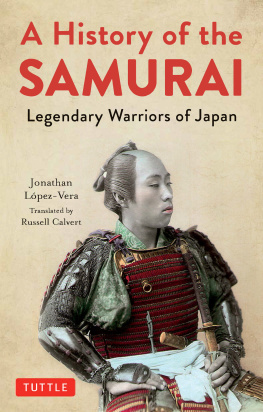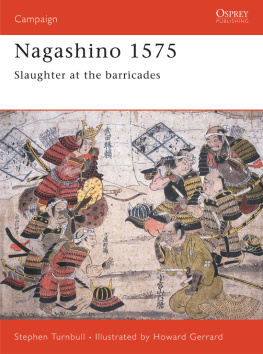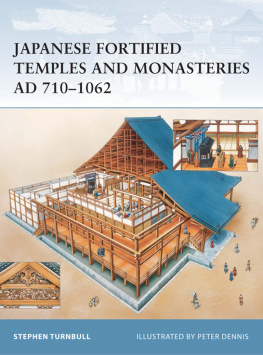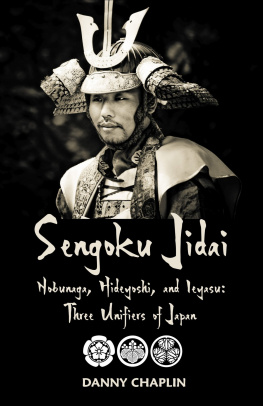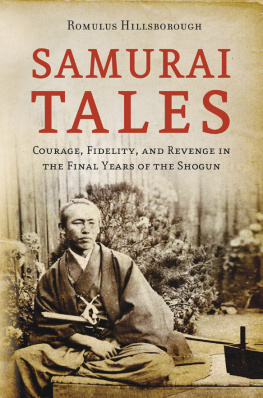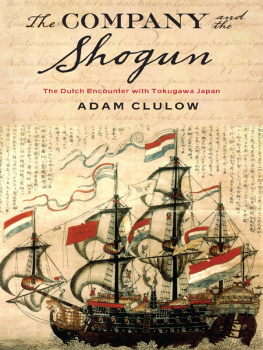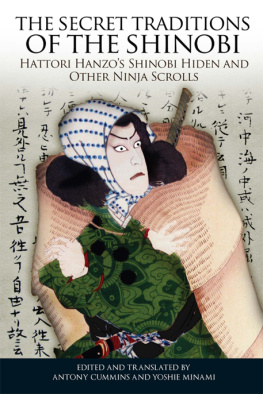ROUTLEDGE LIBRARY EDITIONS: JAPAN
THE MAKER OF MODERN JAPAN
THE MAKER OF MODERN JAPAN
The Life of Tokugawa Ieyasu
A.L.SADLER
Volume 43

LONDON AND NEW YORK
First published in 1937
This edition first published in 2011
by Routledge
2 Park Square, Milton Park, Abingdon, Oxon, OX14 4RN
Simultaneously published in the USA and Canada
by Routledge
270 Madison Avenue, New York, NY 10016
Routledge is an imprint of the Taylor & Francis Group, an informa business
This edition published in the Taylor & Francis e-Library, 2010.
To purchase your own copy of this or any of Taylor & Francis or Routledges collection of thousands of eBooks please go to www.eBookstore.tandf.co.uk.
1937 George Allen & Unwin Ltd
All rights reserved. No part of this book may be reprinted or reproduced or utilised in any form or by any electronic, mechanical, or other means, now known or hereafter invented, including photocopying and recording, or in any information storage or retrieval system, without permission in writing from the publishers.
British Library Cataloguing in Publication Data
A catalogue record for this book is available from the British Library
ISBN 0-203-84508-0 Master e-book ISBN
ISBN 13:978-0-415-56498-4 (Set)
eISBN 13:978-0-203-84317-8 (Set)
ISBN 13:978-0-415-58791-4 (Volume 43)
eISBN 13:978-0-203-84508-0 (Volume 43)
Publishers Note
The publisher has gone to great lengths to ensure the quality of this reprint but points out that some imperfections in the original copies may be apparent.
Disclaimer
The publisher has made every effort to trace copyright holders and would welcome correspondence from those they have been unable to trace.
A.L.SADLER, M.A.
Professor of Oriental Studies in the
University of Sydney
THE MAKER OF MODERN JAPAN
The Life of TOKUGAWA IEYASU
LONDON
GEORGE ALLEN & UNWIN LTD
MUSEUM STREET
FIRST PUBLISHED IN 1937
This edition published in the Taylor & Francis e-Library, 2010.
To purchase your own copy of this or any of Taylor & Francis or Routledges collection of thousands of eBooks please go to www.eBookstore.tandf.co.uk.
All rights reserved
THE MAXIMS OF IEYASU
Mans life is like going a long journey under a heavy burden: one must not hurry.
If you regard discomfort as a normal condition you are not likely to be troubled by want.
When ambition arises in your mind consider the days of your adversity.
Patience is the foundation of security and long life: consider anger as an enemy.
He who only knows victory and doesnt know defeat will fare badly.
Blame yourself: dont blame others.
The insufficient is better than the superfluous.
* * *
And let everyone realize his limitations. It is the biggest dew-drop that falls first from the leaf.
* * *
A wise mind will never condemn a man for the extraordinary acts to which he has been forced to save his country. When the safety of the country is at stake there must be no thought for justice or injustice, pity or cruelty, glory or shame. The sole inspiration must proceed from the demands of circumstances.
MACHIAVELLI
IT hardly scems necessary to begin with the usual apology for producing another book on a Japanese subject in this case because Tokugawa Ieyasu is unquestionably one of the greatest men the world has yet seen, while not only is the type of government of which he developed the most perfect example yet known finding increasing favour in the West, but the empire he did so much to build up is becoming of ever greater international significance year by year. In these circumstances it may be convenient for students of Oriental affairs as well as for others interested in the lives of dominating personalities to have access to some of the outstanding facts of his life and character as they are usually presented to his own countrymen. Possibly lack of material available in European languages, leading to the very free use of the imagination, is the partial cause of the great want of accuracy in statements concerning Japanese history in many books that treat of it, and if this volume is of assistance in diminishing this tendency it may not be entirely useless. The fact that Tokugawa Ieyasu is less known to the average well-read person than his contemporary Akbar may be to some extent due to the lack of any account of his life in any European tongue. And that given here is rather introductory than exhaustive, and contains more material from Japanese sources than quotations from the European documents bearing on him and his period.
Had there existed in Japanese a good modern biography of Ieyasu of convenient length it might have been more profitable to translate it, but no suitable one is available. The most interesting treatment of his life by a modern writer is that in the great work of Tokutomi Soho, History of the Japanese People in Modern Times, which begins about the time of the birth of Ieyasu and continues the story down to the present day. To it I am greatly indebted, and I have availed myself freely of its mounmental learning and critical judgment. No doubt a biography of this kind is somewhat repelling on account of its unfamiliar atmosphere and strange names. As a reviewer recently observed of another work on a Japanese theme, it unfortunately had so many Japanese names in it. But this is now a world in which it may be advisable to get used to them, for unquestionably people of the land of Nippon will always have Japanese names. In fact, unlike ourselves and our European neighbours their names are entirely Japanese, and very rarely, indeed, drawn from any foreign source, except where the exigencies of the script makes the pronunciation Sinico-Japanese. It may be of assistance to repeat that the vowels are as in Italian and the consonants as in English, When Ieyasus name was written in our seript in his own day in his letter to King James Minnamoto no Yei ye yass, it was nearer to the actual sound than is the ordinary way of representing it now, for final u is practically silent in Japanese, and would be quite correct if the second syllable were omitted altogether. I have followed Brinkley in using the spelling with a single y as being the more concise.
In recent years the names of Tokugawa and Matsudaira have no doubt become more widely known outside their homeland owing to two very eminent bearers of them, Tokugawa Iemasa, now Japanese Ambassador at Istambul, seventeenth heir to Ieyasu in the main house, and Matsudaira Tsuneo, Ambassador at the Court of St. James, of the branch house of the lords of Aizu, descended from his grandson Masayuki, scholar and philosopher as well as feudal lord, both of whom have carried on the distinguished tradition of their family as diplomatic representatives both in Europe and America.
All names are in the normal Japanese order, surname first and given name second. In this period, as up to 1870, peasants and artisans had no surname, but might acquire one by becoming military men, for it was only after the days of Ieyasu that the samurai became a fixed caste, and in the sixteenth century as in the twentieth not only a baton but a halo were within the reach of any man of genius.
This book is not peppered with references, for they would be quite useless except to those who read Japanese historical texts, and for them the list of sources at the end will, I think, be sufficient. I wish to thank Miss Githa Conolly, B.A., for assistance in the preparation of the manuscript.



